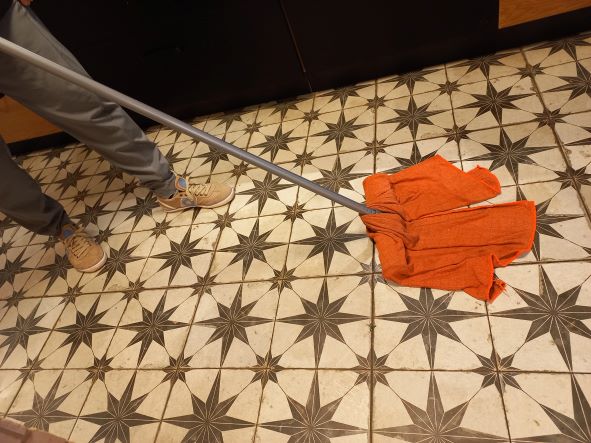Many domestic workers come to us at the end of a long period of employment and ask for support in exercising their rights. At this stage of their employment, however, we often encounter problems that make it difficult for us to ensure that they receive their full rights.
Domestic work is often not documented, and it is difficult to prove the worker’s very employment—an employer may say “Who is this? I have never seen this worker who is claiming to have cleaned my house for five years.” The scope of employment can also be hard to prove—“What, twice a week?! Sometimes I asked them to come before a party I held—maybe once every six months.” It can even be hard to confirm the employer’s identity—“Boa” or “Boaz”?
What is the solution? Workers need to make sure that their work is documented and clearly structured by carrying out the steps outlined below. This makes it easier for them to demand and attain their rights at the end of their employment:
- Regularly document work dates with each employer you have, and we recommend that you document the start and end of every workday.
- Be sure to obtain identifying information for the employer, including the employer’s first and last name and the full address of the location where you are working. These details are essential in cases where a dispute arises about the employment itself. You can take a picture of the mailbox, the name on the door and the building where the apartment or other structure you are cleaning is located.
- You can record cleaning instructions—this is allowed and appropriate. In domestic work this is often no other documentation of required tasks, and this is a legitimate form of documentation.
- Be sure to back up documentation of interactions with your employer (i.e., messages, photos, recordings, correspondence) on any phones you may be using for work because over the years phones get lost, get wet or stop working and all the documentation then disappears with them. Send the documentation to your email address or that of a family member.
- You should try to receive payment via bank transfer or other documented transfer mechanism. A check, for example, shows the employer’s ID number and clearly proves payment.
- If an employer refuses to pay your social rights at the end of the first year, it is not recommended to continue working for them a second year. It is important to know that some benefits owed workers become obsolete if not collected for a few years and so it may not be possible to request them at this point.
- Benefits owed after dismissals or resignations after many years of domestic work during which a worker received nothing but wages are difficult to collect. It is hard for employers to pay NIS 100,000 at once—NIS 1,000 is simpler.
- If you want to resign, do it in writing. You should write a letter of resignation a month in advance of your intention to end a job. You can ask Kav LaOved for help in drafting an advance notice letter and deliver it to your employer.


